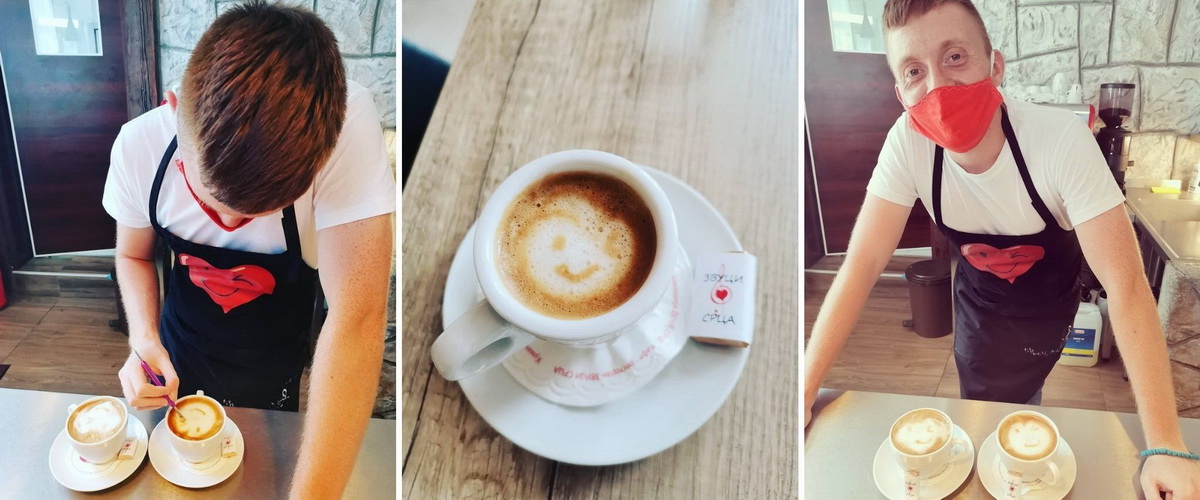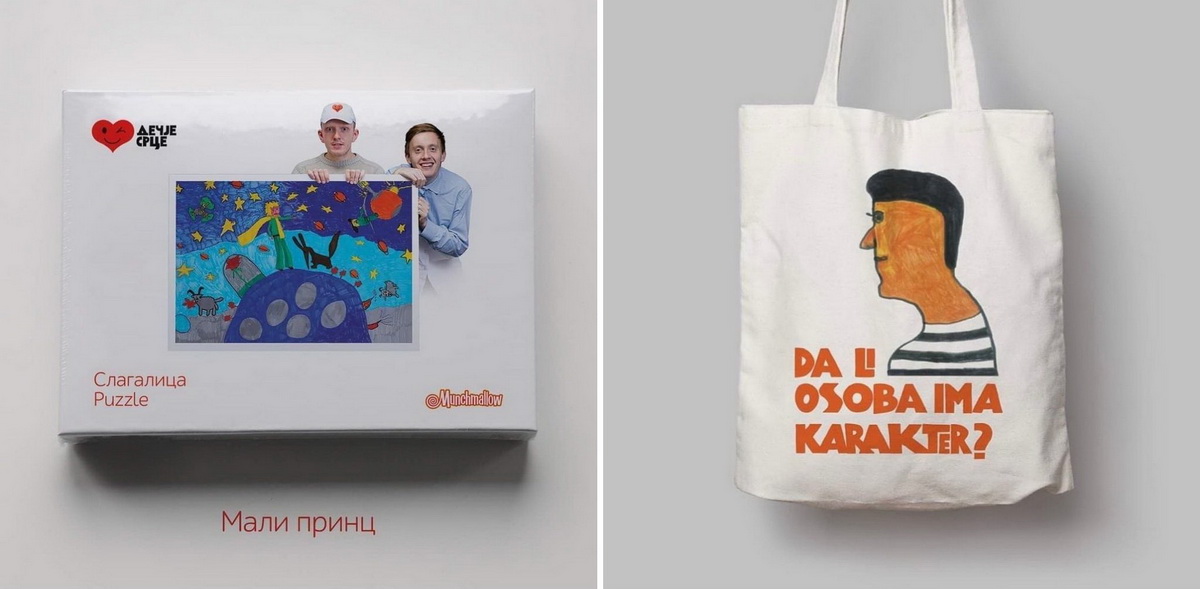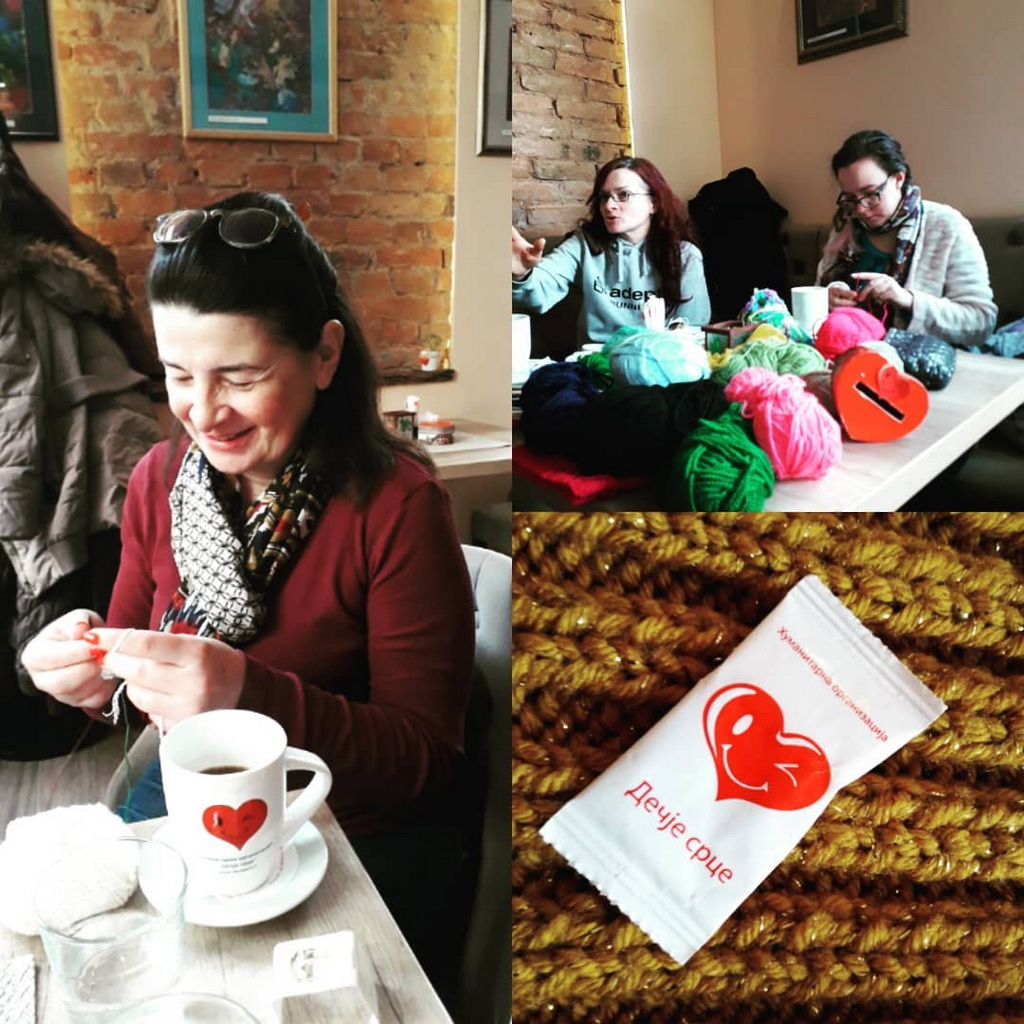 At the onset of the state of emergency caused by the coronavirus in March 2020, civil society organisations were faced with the challenge of transforming their services and programmes to continue providing support to their beneficiaries. Organisations with programmes focused on providing support to persons with disabilities were faced with particular challenges. Sašenka Mirković, programme manager and coordinator of the personal assistant service of the humanitarian organisation “Dečje srce” from Belgrade, providing services to children and youth with development impairments, states: “We work with beneficiaries whose life is most often a state of emergency.” According to her, this crisis was an opportunity to find new ways and points of contact for connecting with families in need.
At the onset of the state of emergency caused by the coronavirus in March 2020, civil society organisations were faced with the challenge of transforming their services and programmes to continue providing support to their beneficiaries. Organisations with programmes focused on providing support to persons with disabilities were faced with particular challenges. Sašenka Mirković, programme manager and coordinator of the personal assistant service of the humanitarian organisation “Dečje srce” from Belgrade, providing services to children and youth with development impairments, states: “We work with beneficiaries whose life is most often a state of emergency.” According to her, this crisis was an opportunity to find new ways and points of contact for connecting with families in need.
Soon after the pandemic was declared, UNICEF appealed to decision makers worldwide to take into consideration children and youth with disabilities when designing their crisis response, particularly those living with a disability regarding development impairments. The initial data and experiences have already shown that isolation carries with it different implications, primarily regarding adaptation and overall mental health of this population.
The “Dečje srce” organisation also contains within its system the “Zvuci srca” cafe, a sort of hub open for various social inclusion initiatives, such as a group of knitters, older citizens performing this work for humanitarian purposes, and a gift shop where the shop-keeping and production of objects (mugs, bags, etc.) is performed by their beneficiaries, young people with development impairments. After the state of emergency was declared, the organisation team shut down these services, and the consequences for the lives of beneficiaries were extremely visible. “It was clear that this engagement gave them purpose, it was not just another in a number of daily activities. Thus we could see first-hand the consequences of this crisis on their lives”, Sašenka explains the effects of the new situation. The challenge was finding a way, as an organisation creating conditions and opportunities for these young people to achieve new interactions with the majority population and expand their knowledge and life experience, for “Dečje srce” to keep providing support when the needs remained, and regular activities were impossible.
At the start of our conversation Goran Rojević, the founder and director of the “Dečje srce” organisation, notes that the goal of all their activities during the twenty years of their existence, is providing support to families for further integration, to become teams and communities for themselves. “Solidarity is the foundation for everything” he says to describe that the approach to work before and after the onset of the crisis was not essentially different, but that these basic values create responses to needs that become more complex in time.
The most widespread service by the organisation during the past six years has been the social welfare service Personal assistant to the child implemented daily with seven hundred families across Serbia. After the declaration of the state of emergency, many families were faced with an unknown situation, requiring new forms of care for our young members, who found themselves in an even more vulnerable situation overnight. “As soon as we received our first call, we knew the need was there, and we got ready for a new dimension of accessibility to our beneficiaries as required by this situation”, Goran describes the idea for establishing a telephone information centre.

The “Dečje srce” organisation has a cafe, “Zvuci srca”, as part of its system, open for various social inclusion initiatives
The info centre was established as a twenty-four-hour telephone service open for all, where experts from the Centre with considerable experience in working with families under regular conditions responded to calls by parents. This decision proved to be extremely important, since it enabled beneficiaries to remain in contact with a mentor they already know, and the type of support that was proven to be the most necessary was active listening and help to independently resolve the problems that arose. “In the majority of cases, to this day, parents need someone to listen and provide support so that they can find a solution themselves to various problems, such as the inability to put their child to sleep”, notes Goran regarding the philosophy of empowering families towards independence under the given conditions.
The complexity and specificity of each family situation is reflected in the example of the Jakšić family, since Mrs Jakšić was infected with COVID-19, whereby her husband and two children found themselves in a particularly challenging situation. “The most important for me, in contact with the Centre, was the feeling that I am not alone in a completely unfamiliar and uncertain situation”, Milan said about the importance of this service for his family. At the same time, Sašenka notes that for the organisation team and mentors this was also a form of learning to understand how to provide support to a parent objectively facing an unknown on a broader plane, with effects visible on small, everyday tasks, such as coming up with meals for all household members.

“Dečije srce” also operates a gift shop, with shop-keeping and production engaging its beneficiaries, youth with development impairments
“Such interactions have encouraged us to solidify our relationships with the families and, together with them, to once again define our roles in these relationships”, Goran describes how the new situation was, with metaphorical and literal listening to the needs, a growth opportunity for all those involved. Both Sašenka and Goran note that the empowerment of families in this situation, as well as in a regular state, is based on encouraging families to have all their members take on active roles in the creation of family life. “This applies to the smallest of family activities, such as vacuuming or caring for a pet”, says Goran. This crisis, according to our interlocutors, created an opportunity for parents to see how independent their children actually are. “It was our duty to show them how resilient they are as a unit, and that we are there for them, but now they need us in a new and different way”, Sašenka says about the evolution of these relationships.
The info centre is currently a regular service provided by the organisation. The next phase of development will be based on the experience acquired by the organisation team during this year, that represents a learning basis for many future situations. Part of the vision is to sublimate individual, practical responses to the challenges faced by families into a digital, or perhaps even a printed version of a book of advice, that families could turn to in times of need. The synthesis of lessons learned and collective experience represents a challenge to the organisation to offer a corps of knowledge that can benefit the entire community.
 Government of the Republic of Serbia
Government of the Republic of Serbia
















 pdf [271 KB]
pdf [271 KB]
Leave a Comment